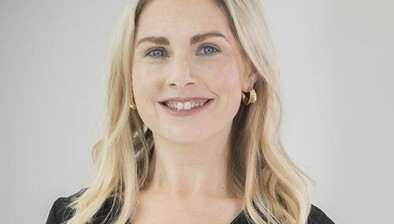High Court: Adoption application granted without natural father’s input

Andrew McKeown BL
The High Court has granted an adoption order without the input of the natural father in circumstances where he did not have a relationship with the child, and where he had not responded to the adoption proceedings.

About this case:
- Citation:[2020] IEHC 493
- Judgment:
- Court:High Court
- Judge:Mr Justice Max Barrett
Background
Údarás Uchtála na hÉireann, the Adoption Authority of Ireland, sought an order pursuant to the Adoption Act 2010 s.30(3)(a) approving the making of an order for the adoption of X, a minor, without consulting the natural father in circumstances where the Adoption Authority was satisfied that it would be inappropriate for it to consult with the natural father in respect of the proposed adoption.
The Adoption Act 2010 s.19 provides that a court must have regard to the best interests of the child as the paramount consideration in such proceedings. The court should consider the child’s age and maturity, their physical, psychological and emotional needs, the likely effect of adoption on the child, and the child’s views on his or her proposed adoption.
The court should also have regard to the child’s social, intellectual and educational needs, their upbringing and care, and their relationship with his or her parent, guardian or relative, as the case may be.
X’s stepfather applied to adopt X. He has been married to X’s natural mother for a period of years, and he is the only person whom X sees as his father. The natural father has met X on five occasions; the two have not met since X, a near-teenager, was little more than a toddler.
The Authority made multiple attempts to consult with the father, as it is obliged to do so by s.30(2), to hear evidence from him in relation to the proposed adoption, and to give him an opportunity to apply for custody or guardianship, which he has not done.
The court had sight of a number of reports made by a social worker within Túsla, the Child and Family Agency, concerning the proposed adoption. The social worker observed that X became very upset when the applicant and his wife spoke about the adoption application and his birth father. X did not remember any previous contact with his birth father, and his only memory is of his proposed adoptive father being his father. He also refused to talk with his social worker on two occasions about the adoption application becoming visibly upset when the topic was raised.
The social worker said that X and the proposed adoptive father have a very strong attachment and close father and son relationship, evident from the family photos displayed around the house, the cards X wrote over the years on Father’s Day and also on the proposed adoptive father’s birthday, and in how they both presented in each other’s company.
The report said that the applicant and his wife are the only family unit X knows. While X was aware of the adoption application, he found it difficult to speak about it.
Mr Justice Max Barrett “respectfully” queried whether the standard form affidavit of maternal consent, which makes reference to the applicant’s religion, an issue which the court said might conceivably be of relevance in some adoptions, ought perhaps to be reworded so as to allow for the possibility that the applicant has no religion: “At the moment it reads as though professing a religion is standard and/or to be expected.”
The court was referred to the ex tempore judgment of Mr Justice John Jordan in The Adoption Authority of Ireland v X (a minor) [2019] IEHC 946 where the natural father had some contact in the early stages of the child’s life, and an application under s.30(3) came before the High Court. The judge granted the approval sought, finding that the very brief duration and negligible substantive nature of the father/child relationship pointed to it being a case where an approval ought to issue.
Mr Justice Barrett, obiter, noted that there is an inherit weakness of the format of the within application, for which the Authority was not to blame. In the Authority making its application, and bringing its proofs (which the court noted will typically be supportive of that application), the court is called upon by the statutory system to consider the matter “in the face of a well-intentioned but typically one-sided presentation, without input from a legitimus contradictor”.
The court noted that no cohabitation and access rights had ever been sought; there were five instances in which the natural father met with his infant child and there has been no interaction between them for the greater part of a decade.
The European Court of Human Rights in Eski v Austria [2007] 1 FLR has similarly highlighted the primacy of the best interests of the child and the balancing of rights, finding in that matter that “family life as such does not exist and did not exist in a way in which would engage Article 8 rights in favour of the father”.
Conclusion
Accepting the social worker’s evidence, and, having considered same and the entirety of the pleadings, the court wished X and his family “the best as they embark on the next stage of their journey as a family”.
The judge was satisfied with the application made for the adoption of X, and the court so ordered.









